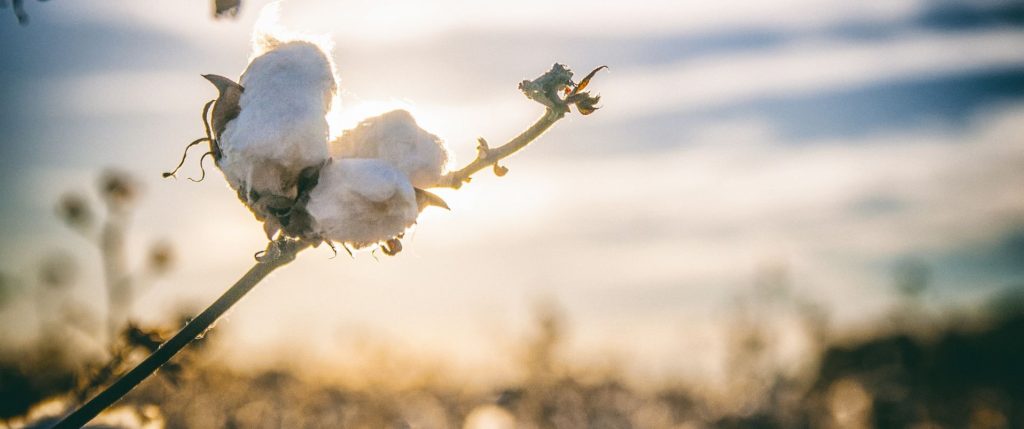What is Organic Cotton?
Simply put, organic cotton is non-genetically modified and is grown without any synthetic agricultural chemicals, such as pesticides. Organic cotton farming methods maintain healthy soil ecosystems, and people, by using natural processes rather than artificial methods.
Just because a product is labeled as ‘green’ or ‘sustainable,’ does not make it organic. In order to be considered organic, the product must meet strict standards and regulations. Third-party certification organizations such as ICEA work to verify that organic producers are only using methods and materials permitted in organic production.
Organic Cotton vs Conventional Cotton
Organic cotton seeds are natural, untreated and GMO-free. They are also grown in healthy soil that is prepared through crop rotation. To control weeds, organic cotton utilizes beneficial insects and trap crops and is harvested through natural methods such as freezing temperatures or water management. For production, organic fibers are stabilized using nontoxic methods such as cornstarch, whitened with safe peroxide, and washed with warm water and soda ash.
Conventional cotton seeds, on the other hand, are treated with fungicides or insecticides and possibly GMOs. Synthetic fertilizers and pesticides are used for weed control, and toxic chemicals are used for harvesting. For production, conventional cotton fibers are typically stabilized with toxic waxes, whitened with a chlorine bleaching process that creates dioxins (toxic by-products), and washed with a mix of hot water, synthetics, and chemicals (sometimes formaldehyde).

Why is it Important?
Cotton is one of the most widely grown crops in the world. It only covers about 3% of the world’s cultivated land, but it is one of the most chemically-intensive crops, using 10-16% of the world’s pesticides– more than any other single major crop. Organic cotton only represents a very small fraction of global cotton production.
Organic cotton is extremely environmentally friendly – it doesn’t damage soil, has less impact on the air, and uses 88% less water and 62% less energy than conventional cotton. It also avoids the use of any toxic chemicals throughout the entire process. Organic cotton helps keep farmers and their families safe because it is not exposing them to toxic chemicals in the field or through their food/water supplies. Due to crop rotation standards, organic cotton farmers grow more than one crop which supplements their food and income.
What Can You Do?
The most impactful thing that you, as a consumer, can do is to purchase organic cotton products – everything from clothing to menstrual care products. When you buy organic cotton, you are supporting water preservation, cleaner air, less energy consumption, healthier soil, and the livelihoods of farmers. Make sure that your organic cotton products are certified by checking the label and doing research. You can spread the word by talking to your friends and family about the importance of organic cotton or sharing this blog post on social media!
Ready to make a change? Browse our collection of organic cotton products, ranging from applicator tampons, beauty accessories, wipes, panty liners and menstrual pads!

